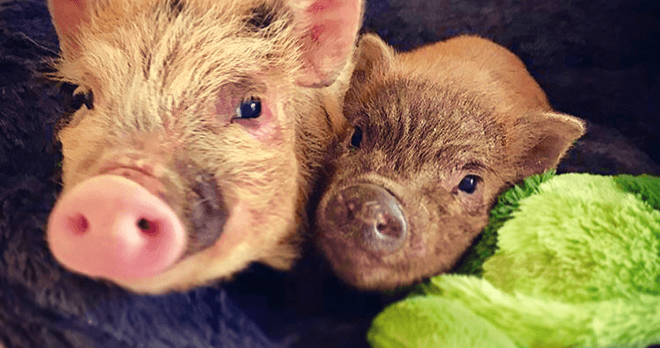Therapy animals – how they can help after injury

You may have heard about support animals, and whilst in some circles they are viewed quite cynically, they do have genuine value to those living with particular challenges – be they mental or physical.
A client of ours in fact has two support animals: James and Walter, who are both micro pigs. We asked her about what it’s like to live with these two inquisitive little animals.
“Get this: they sleep in my bedroom”, our client says. “They sometimes go outside in the day so we can actually have some peace – James is very vocal, especially when he wants food, as you can imagine. Walter, on the other hand, can be quite quiet, but also quite cheeky nonetheless!
They both love affection, especially when you scratch their tummies. They have even been known to fall asleep whilst we are doing this.”
They may just sound like normal pets, and in a way they are, but for our client they’re much more than that.
“Having said all this, they both cheer me up when I’m sad about things, particularly my cerebral palsy. I personally think animals provide you with a lot of happiness, and that’s something I’ve discovered a lot growing up. Pigs can detect emotions and are responsive to them, positive or negative”.
Why therapy pigs?
It is this that drew our client, and myself as her financial deputy, to purchasing these micro pigs. Our client researched their therapeutic value and sent me a very persuasive email outlining the benefits of acquiring them. They have proved to be so much more than just cute animals, providing genuine emotional support to someone who faces many challenges which can, on occasion, lead to low mood.
Therapy pigs are known to ease anxiety and panic attacks and to improve the symptoms of depression and Post Traumatic Stress Disorder in some individuals. Pigs are naturally highly social and respond well to touch; they form close bonds with people and this has certainly been the experience of our client and her family.
The purchase of therapy animals should be considered by a financial deputy when making decisions for supporting a client with a long-term injury; I have frequently been asked to authorise the cost associated with training a Dog for Good, but this was the first time I had been approached to authorise the purchase of a micro pig.
Given the relationship between our client, her family, and James and Walter, I know that this bond will improve their wellbeing and teach our client new skills about taking care of an animal.